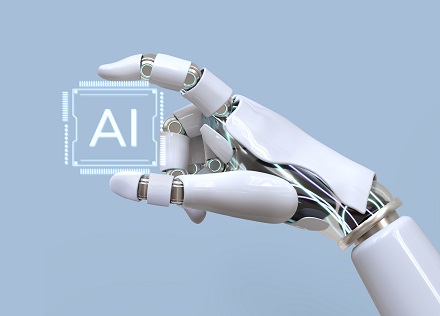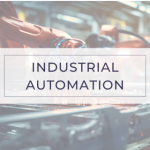The increasingly evident and established integration of artificial intelligence and automation is revolutionizing the world of work and bringing radical transformations to society as a whole. What is materializing is a true convergence that offers unprecedented opportunities to facilitate innovation: this means not only increasing efficiency standards in terms of productivity but also improving people’s quality of life. Artificial intelligence allows for:
- personalizing production,
- optimizing processes,
- increasing automation capabilities.
Regarding the latter point, integrating artificial intelligence into automation systems fosters the development of cutting-edge predictive capabilities. Machine learning algorithms, through the analysis of vast amounts of data provided by sensors or derived from what the machines have learned, can predict, and therefore anticipate and prevent, anomalies and failures. The production process is subject to constant and careful analysis, as the algorithms can identify potential inefficiencies and propose necessary corrections. Predictive maintenance becomes crucial, enabling the avoidance of machine downtime while optimizing asset production capabilities.
Emerging innovations: automation and AI
Automating tasks means, among other things, making production flows simpler and faster, with less need for manual intervention. Thanks to artificial intelligence, processes improve, with positive effects on production efficiency. Therefore, the common misconception that automation and AI “steal” jobs from human operators should be dispelled: on the contrary, the latter are assigned to strategic tasks that have greater added value. Moreover, AI, with its ability to analyze data, meets the market’s demands for increasingly high-quality and customized products. Understanding what consumers want, knowing their preferences, and even predicting them: today, this is possible with artificial intelligence. But that’s not all, because among the emerging innovations enabled by automation and AI is the ability to identify potential manufacturing defects in real-time, ensuring that production standards remain as high as possible. Consequences? Waste is reduced, and the efficiency of the entire production system increases.

Economic Impacts of automation and AI
Automation and artificial intelligence have positive impacts not only from a production and technological standpoint but also, and more importantly, on resource utilization. Alongside increased productivity, there are benefits such as production customization, higher safety standards for workers, improved energy efficiency, and more efficient management of the entire supply chain. Artificial intelligence ensures significant improvements in the logistics sector, for example, as it can manage inventory based on demand forecasting. Additionally, algorithms are designed to optimize minimum stock levels, allowing for automated supply management while human operators continue to oversee the process.
A data driven approach
Among the major transformations we are facing in the era of automation, all those related to predictive artificial intelligence are of fundamental importance. Predictive AI, through the analysis of historical data, allows for the production of forecasts regarding future trends. This approach can be essential for optimizing both economic and human resources: for example, by personalizing the user experience through the prediction of customer behaviors, and more generally, by making business strategies more efficient. However, it is important to remember that artificial intelligence can only function effectively if it is based on data. In other words, AI cannot provide immediate results and certainly cannot do so autonomously: it requires a well-structured dataset. Only in this way can machine learning and artificial intelligence algorithms be fueled to provide accurate predictions, enabling well-informed decisions.
Social transformations in the Automation Era
However, it is inevitable to ask what the ethical implications of using artificial intelligence are, especially in terms of responsibility. The positive aspects are numerous and evident: the latest innovations help reduce the physical burden on workers and, consequently, minimize the risk of injuries. If the efficiency of production processes improves, this also reflects positively on the working operators’ conditions. Workers have the opportunity to focus on creative or complex tasks, as collaborative robotics handle the more repetitive ones. The impact is significantly positive not only on sustainability but also on business competitiveness. Consequently, both the quality of production and the well-being of workers increase in parallel.


